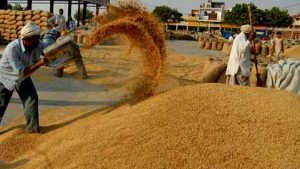
Nepal’s Betel Nut Trade in Crisis Amid DNA Testing Requirements

Nepal’s betel nut trade, a significant source of livelihood for thousands of farmers, has hit a standstill as the government grapples with policy directives requiring DNA testing for exports. The Parliamentary Sustainable Development and Good Governance Development Committee recently instructed the Ministries of Finance and Commerce to allow exports only after verifying the origin of betel nuts through DNA tests.
Betel nut, a major cash crop in districts such as Jhapa, Sanischare, and Bahundangi, has been cultivated for years, producing 15,000 metric tonnes annually in Nepal’s eastern region. This harvest, valued between Rs 8 billion and Rs 12 billion at market prices, is primarily exported to India. However, the lack of an operational DNA testing laboratory has brought exports to a halt since last year, affecting the livelihoods of over 100,000 farmers.
Nilakantha Tiwari, central chair of the Betel Nut Farming Development Association, voiced the farmers’ growing concerns, calling the DNA testing requirement impractical. “The DNA testing of betel nuts for every export is unfeasible. The policy confusion has turned the future of farmers from Jhapa to Udayapur dark,” Tiwari said.
India has imposed a quota for Nepali betel nut imports, demanding proof of origin to prevent smuggling. However, the absence of a DNA testing facility has stalled exports under this quota, leaving farmers like Jeevan Pandey of Mechinagar Municipality worried about their unsold stock.
Pawan Baraili, a ward member from Mechinagar-4 Bahundangi, criticized the government for failing to support farmers, many of whom turned to cash crops like betel nut and tea after wild elephants began destroying traditional crops such as paddy and maize.
Betel nut farmers in pioneering production areas, including Budhare, Bahundangi, and Sanischare, have urged the government to expedite policy solutions and establish necessary infrastructure to resume trade.
Tiwari emphasized that prolonged export disruptions threaten the livelihood of thousands and the regional economy, urging policymakers to simplify DNA testing procedures or reconsider the directive altogether. As the government deliberates, the future of Nepal’s betel nut farmers hangs in the balance.












Comments